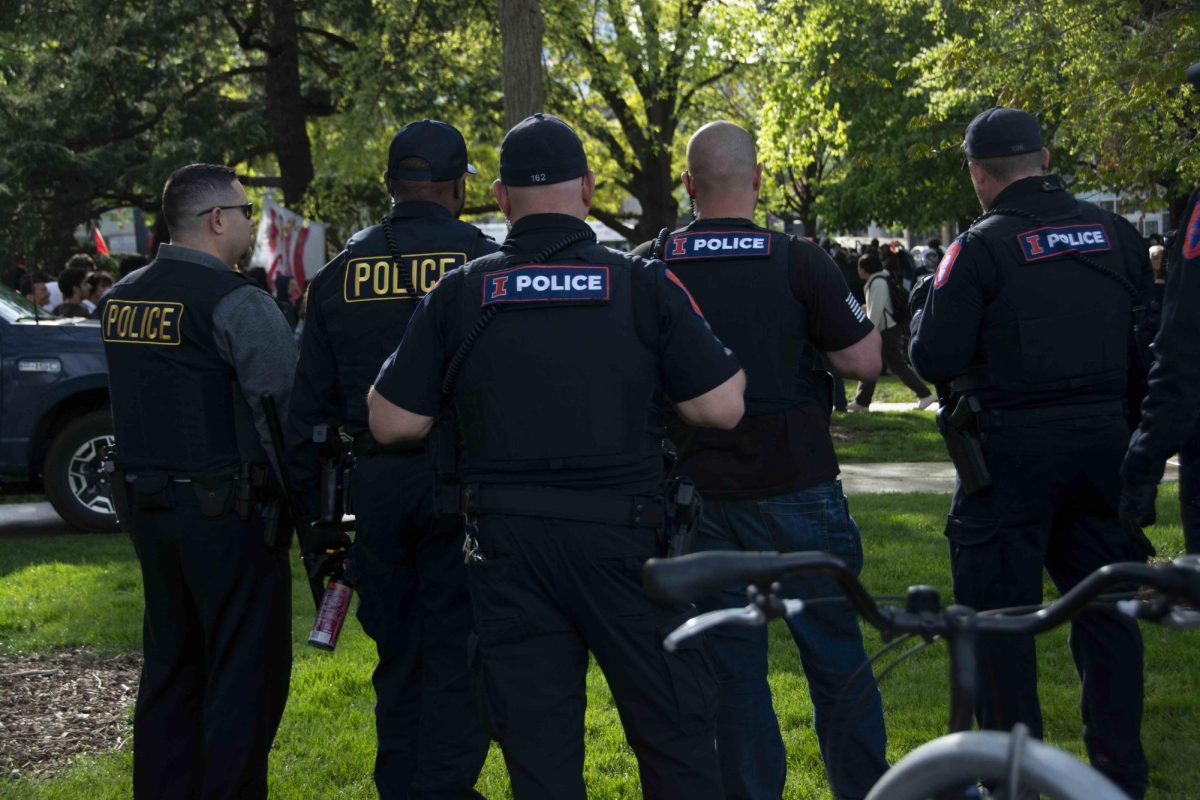The Urbana-Champaign Senate saved its most important item of business for last at Monday’s meeting.
The Senate heard from Paul Diehl who headed the committee that recently produced a report on the consolidation and integration of multi-campus universities.
Diehl said one of two main distinctions noted in the report is the difference between a “multi-campus university” and a “multi-site university.” The former, Diehl explained, is one that contains multiple universities which are in the same system but have a fair degree of autonomy. The latter is characterized as one university with many different branches.
The second distinction made in the report is between administrative or business functions and academic functions.
Diehl noted two main “walk-away points” from the report. First, he said the two types of universities were completely “different animals.” Second, he said the multi-site model is better equipped to handle administrative needs, while the multi-campus model is better suited to handle academic ones.
Get The Daily Illini in your inbox!
Faculty senators aired their concerns about possible consolidations in the University’s operations.
J. Douglas McDonald, professor of chemistry, said the line between administrative and academic functions is sometimes less distinct. He said the centralization of business functions, such as purchasing supplies, can greatly impede some academic functions of a university — namely research.
“Bad things happen,” McDonald said. “Things get lost. It gets very slow, and the quality of the University, in terms of its research mission, is very badly compromised.”
He cited the system used at New York University, which he said hinders research so much that it caused a Nobel prize winner to leave and subsequently join the University’s chemistry department.
“We’re very happy he did that, but it wasn’t good for NYU,” McDonald said.
Steven Michael, professor of business administration, said the report failed to address the importance of a University’s “brand” in the minds of potential students, as well as potential employers. He said when he asks his students which other schools they applied to along with the University, they very rarely, if ever, say they applied to any other campus in Illinois.
“I think the point is lost that there is, in fact, differentiation in the mind of the customers: the students,” he said.
Partly in response to the report, Nicholas Burbules, professor of educational policy studies, offered a written proposal that calls for a wider University discussion about the most current issues facing the institution. He said the proposal begs such a discussion, which Board of Trustees chair Chris Kennedy and other University officials have recently suggested.
“It’s pretty apparent to me and many others that we’re in the middle of a series of proposals that will fundamentally transform the institution we are a part of,” Burbules said.
He said such significant changes should not be made “without consideration and adequate thought to the long-term implications of implementing these transformative changes over the kind of institution the University of Illinois is.”




